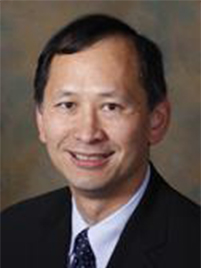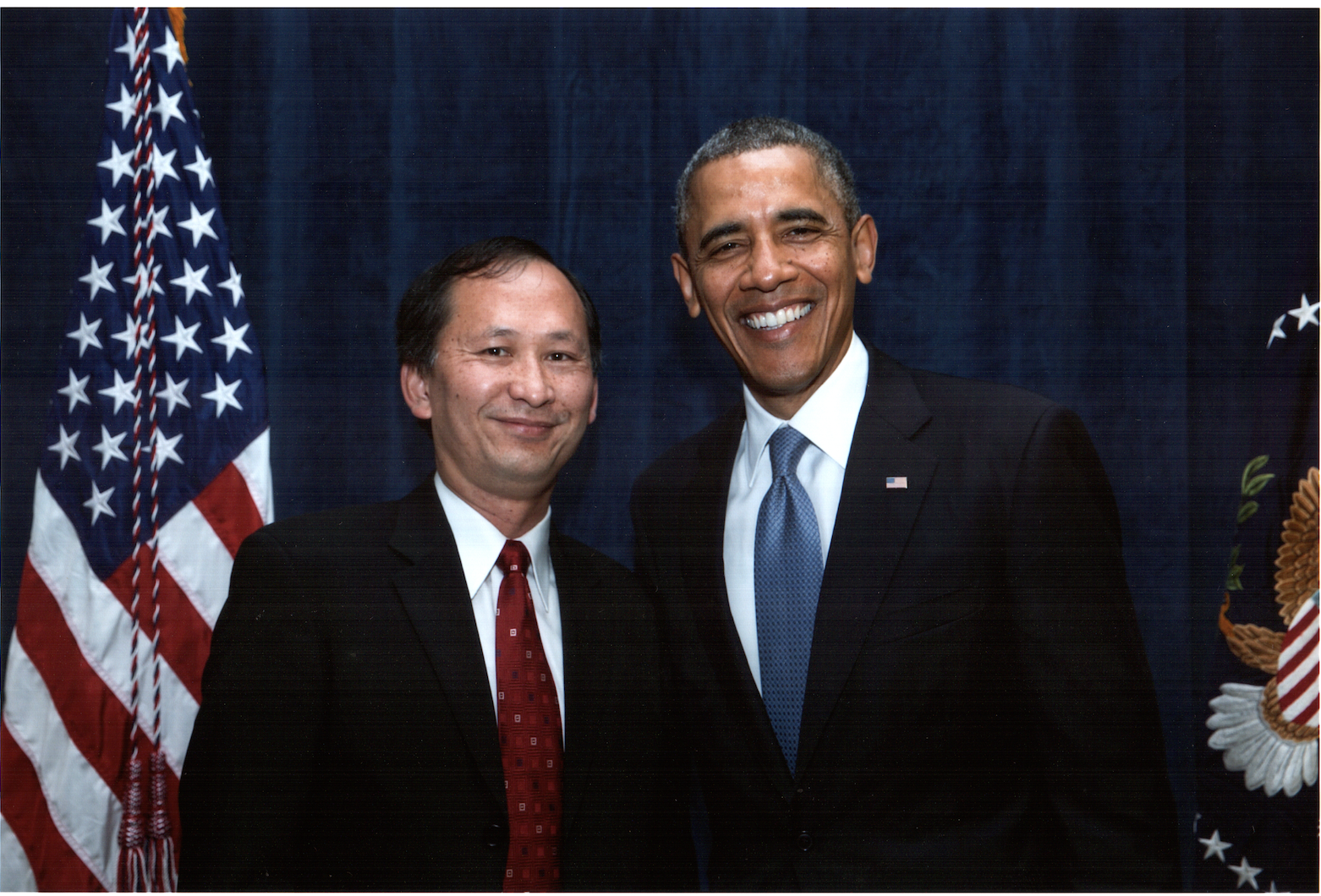Faculty Interview: Tung Nguyen, MD
A Conversation with Tung Nguyen, Professor in the UCSF Health Division of General Internal Medicine
What is the proper pronunciation of your name?

Professor
In Vietnamese, it is “Tùng,” which means, “pine tree”. Viet Nam is tropical but there are pines in the north and central highlands. It is a hard “T” made by placing the tongue at the roof of one’s mouth and ending with a soft “G”. It isn’t easy for many to pronounce so you can see why I respond to “Tung,” pronounced, “tongue” with a long “U.” My surname is “Nguyễn,” pronounced, “Win.”
Can you recall a happy moment from this past weekend that still makes you smile during the workweek?

My boys are ages 20 and 15 and my daughter is 14 . We try to do much as we can as a family. This weekend, we watched A Quiet Place at home. It made me happy because we were all together as a family and just hanging out. We all had different reactions though. I focused on the mortality part of the story, but the kids insisted that it was about the scary monster. They seem to like staying at home and we can all be in the same room but doing different things. Being together is the best.
Was Philosophy an ideological or practical degree? How has it enhanced your approach to your profession and/or life?
When I was young, people would say that I was too philosophical for a kid. In our strict Vietnamese/Catholic worldview, there wasn’t allowance for ambiguity or questions that challenged culture or faith. In college, I considered becoming a doctor and thought that there might be more than just biology and medications. l wanted to learn to think about the deeper questions of birth, illness and death. In philosophy, it was okay to think and talk about them. There was also a huge power dynamic between doctors and patients, and philosophy allowed me to look at that. In the mid-80s, years before Jack Kevorkian, I wrote my thesis about the role of the doctor in assisted death. Philosophy really helped me feel that I was ready to go to medical school.
Is faith still a relevant driver for you?
It is in many ways but my definition of faith has evolved. Political events have shaped how I view things, for example, what is happening at the border with families being separated. I see this tragedy through the lens of being a doctor, of being a parent and of being a Christian. Terrible things are being done to people and faith permeates how I respond to those events. I try to go to Mass occasionally but admit maybe not as much as I could.
Would you share your family’s odyssey from Viet Nam to the United States?

I was born in a mountainous region of Viet Nam, in a town called, “Ban Me Thuot” where there were huge rubber and coffee plantations. At the end of the war, when I was ten years old, we fled because my father was Catholic and a businessman. Our route as refugees went to Saigon, then the Philippines and Guam, and ultimately to Harrisburg, Pennsylvania, with other Vietnamese refugees. After that, we moved to San Jose, where my parents for many years ran a grocery store called the New Saigon Market. When the city claimed eminent domain and forced the closure of their store, they were essentially forced to retire so, in essence, they’ve had major events that ripped their lives apart from which they had to re-build.
Congratulations on being honored by the Asian Health Services. In the video (https://www.youtube.com/watch?v=TMe6J8d0ZQM) of the proceedings, your brother’s humorous comments reveal his admiration for you. Are you and he alike or very different?

Because there is such a gap in our ages, 6½ years, we essentially grew up as only children. As a result, we each grew up feeling that we were the center of our world and that our viewpoints are important to be heard. We are alike in a lot of way, and much of that is probably passed down from our parents: certain views having to do with ethics, morality, taking care of the underserved and paying attention to the disempowered. He went to Berkeley and became more radical, and I went to Harvard and became a little bit more middle-of-the-road. I’ve learned more about him now that he’s famous through his writings and, in our approach to our work, the key similarity is that we are interested in everyone’s viewpoint. For me, there’s no one best way of doing research or achieving health, and in his novel, he delves into many of the characters’ viewpoints. One of our ongoing jokes, mostly on my part, is that the day he got the Pulitzer Prize, the sibling rivalry was over! All joking aside, I am very proud of him.
Your brother described you as “disciplined, smart and driven.” Have you ever stepped outside of that persona and been goofy?
My kids do not recognize anything of that person and they laugh at my quirks. For example, my son knew that even though I was obsessed with buying an InstaPot that I would probably never use it. He was right so now he makes fun of me. A lot. I think I have a good sense of humor once people get to know me and I often turn my humor on myself. I tend to see myself at a certain age and, as I get older, still feel that age but also have to behave like a UCSF professor who has to say certain things at certain times in certain places, a kind of a social schizophrenia. This raises an interesting point because, in Vietnamese culture, you can’t be the same person with everyone because you would be considered disrespectful. Ours is a role-based culture and the idea of identity being about “me,” or “who I am,” which is very Western, isn’t that important. For example, in our language there is no “I” or “you.” Everybody has a pronoun and that pronoun is defined in relationship to you. For example, I would in respect call you, because I know you, “older sister” and I would be “younger brother.” It’s all relative and in context so I have no problem being both a serious UCSF professor and a goofy parent – it’s completely consistent
With displacement, immigration and social crisis in our time, how do you still fight the good fight?
I do get discouraged, but that is part of the ebb and flow of the work. I had pretty strong role models in my parents. It couldn’t have been easy to leave your country for another where you don’t speak the language or know what to do. It had to be frustrating and fearful, but they got up every morning to do whatever they had to do. So we do the same, otherwise you give up on yourself and the people you serve. I consider myself a cynical optimist, if that’s even possible. I always think that things are going to end badly but the only thing I can do is keep on doing things that, if they work, fine, and if they don’t, you try something else. Success breeds failure and failure breeds success.
How do you define your work in a larger context since you resigned from your post on President Obama’s Advisory Commission on Asian Americans and Pacific Islander?

It’s all about seeing people for who they are, giving them what they need and the space to be who they want to be, and fighting for all of that. Thinking about someone who is LGBT and struggling, thinking about someone who is an immigrant, someone who is poor or someone who is homeless. In the medical field, it’s making sure that people are healthy the way they want to be healthy and, in the political sphere, it’s making sure they have the right to live their lives the way they want to live.

My research is about empowerment: identifying what is keeping people from their goals, building capacity to educate themselves or others, empowering people to create the environments that they need to be healthier. Health is part of the political sphere and, conversely, everything political drives health. If I am to be a good doctor, I must be out there fighting for the Affordable Care Act and the right of people to vote. What’s great about UCSF is that there are so many champions who are not afraid and who are inspiring students to do what they believe in.
Which philosopher has a saying that you live by?
There’s a movie from the 80s called Buckaroo Bonzai in which the main character says, “wherever you go, there you are.” Seriously, at Harvard I had the privilege of learning from John Rawls, who wrote Theory of Justice. He envisioned a “veil of justice,” in which we do not know who we are when we create a society, so that forces us to create a system of justice that benefitted all – a system with no inequities. The quote that has always stuck with me is “Justice is the first virtue of social institutions…justice does not allow that the sacrifices imposed on a few are outweighed by the larger sum of advantages enjoyed by many.” This is why I try to make my work as collaborative and community-based as possible; to the degree that we can, we have to address power differentials and create interventions that work for everyone.
Thank you, Tung.